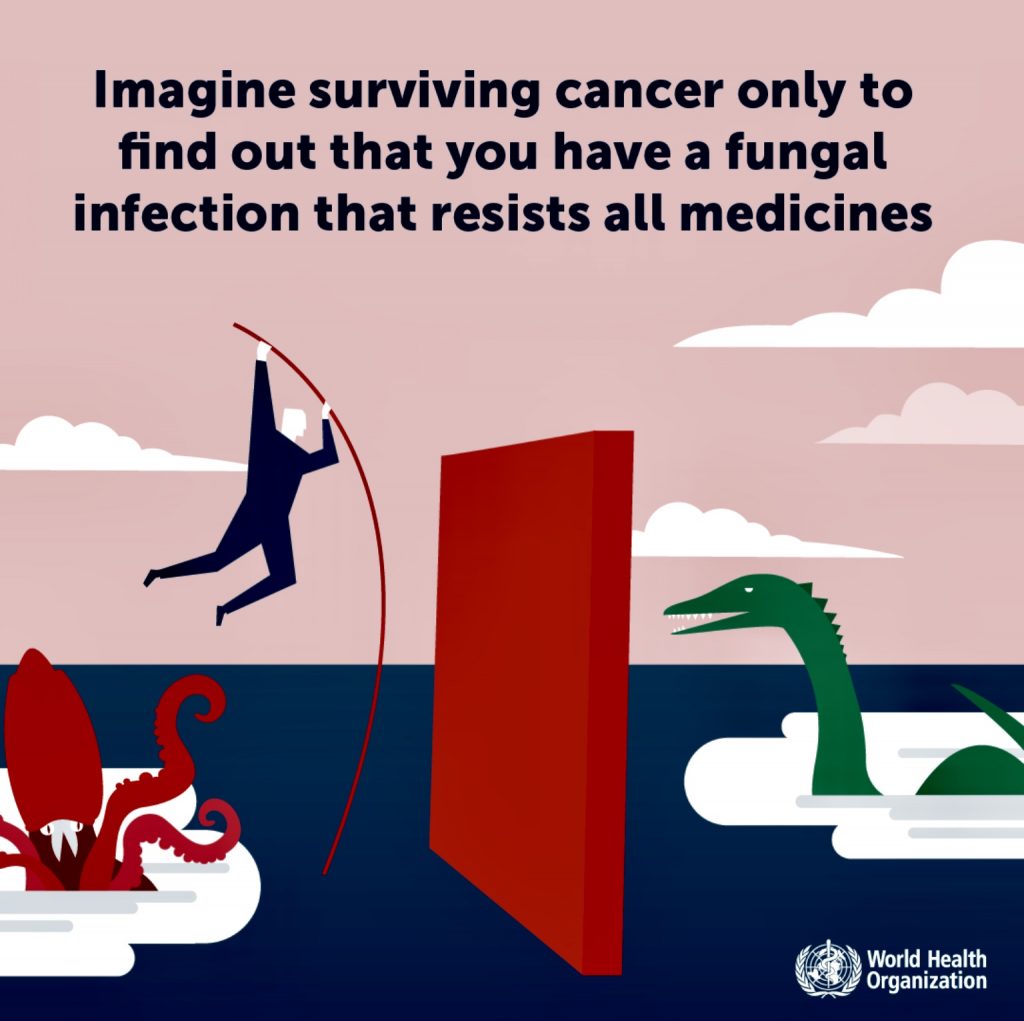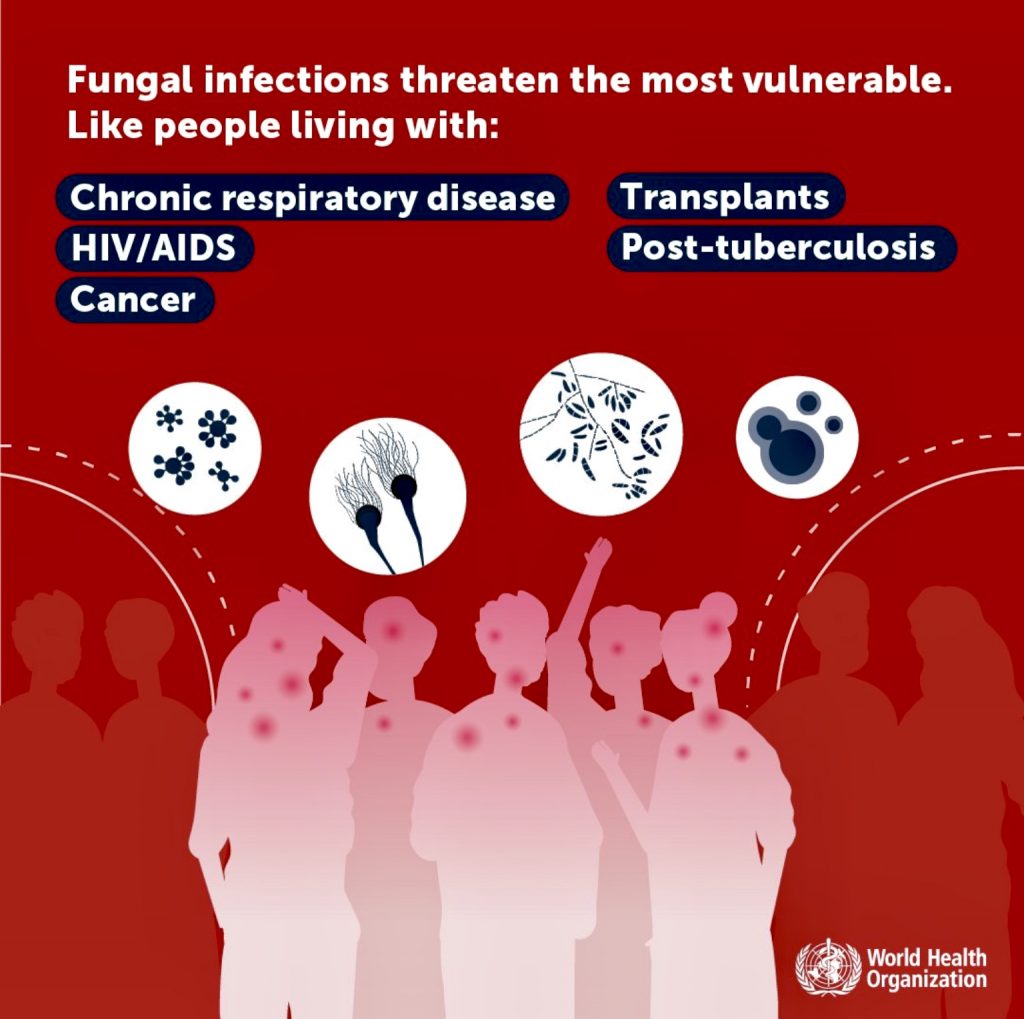By Henrylito D. Tacio
Fungal infections are turning out to be more common and resistant to treatment, according to the Geneva-based World Health Organization (WHO).
This is bad news. Imagine surviving cancer only to find one day that you have a fungal infection that fights all available medicines?
Aside from those suffering from cancer, people living with human immunodeficiency virus, organ transplant patients, people with chronic respiratory disease, stem cell transplant patients, and tuberculosis are at greatest risk of invasive fungal infections, according to the World Health Organization (WHO).
Anyone can get a fungal infection, even people who are otherwise healthy. “Fungi are common in the environment, and people breathe in or come in contact with fungal spores every day without getting sick,” the US Centers for Disease Control and Prevention (CDC) states.

However, in people with weakened immune systems, these fungi are more likely to cause an infection.
“If you have a weakened immune system, you should be aware that fungal infections can happen,” warns CDC. “Learning about fungal infections can help you and your doctor recognize them early. This may help prevent serious complications.”
But what are those fungal infections that are life-threatening?
Look no further, the United Nations health agency has just catalogued the 19 fungi that represent the greatest public health risk today.
“The aim of listing these fungal ‘priority pathogens’ is to promote research and strengthen our response to fungal infections and antifungal resistance,” the WHO said in a statement.
The importance of the issue was demonstrated during the recent coronavirus disease 2019 (COVID-19) pandemic, where invasive fungal infections increased significantly among hospitalized patients, “often with devastating consequences.”

“New groups at risk of invasive fungal disease are constantly being identified,” the WHO said. “As the fungi that cause common infections – such as candida oral and vaginal thrush – become increasingly resistant to treatment, risks for the development of more invasive forms of infections in the general population are also growing.”
According to WHO, there are only four types of antifungal medicine available today, “which is a problem as fungal infections are becoming more common and resistant to treatment.”
To give an idea of the scale of the potential threat posed by fungal infections, the WHO noted that drug-resistant bacterial infections already “directly cause 1.27 million deaths and… contribute to approximately 4.95 million deaths every year.”
Just like the antibiotic resistance, antifungal medicine resistance “is partly driven by inappropriate antifungal use,” the WHO said, adding that the ill-judged use of antifungals in agriculture had been linked to rising infections of a common mould that has the capability to spread, Aspergillus fumigatus.
The catalogued pathogens are ranked and listed in three priority groups: critical, high, and medium.
The critical group includes Cryptococcus neoformans, Candida auris, Aspergillus fumigatus and Candida albicans.

Under the high group, the list comprises Nakaseomyces glabrata (Candida glabrata), Histoplasma spp., eumycetoma causative agents, Murorales, Fusarium spp., Candida tropicalis, and Candida parapsilosis.
In the medium group, the following pathogens are mentioned: Scedosporium spp., Lomentospora prolificans, Coccidioides spp., Pichia kudriavzevii (Candida krusei), Cryptococcus gattii, Talaromyces marneffei, Pneumocystis jirovecii, and Paracoccidiodes spp.
Latest data shared by WHO indicates that fungal diseases are expanding in number and reach worldwide.
“Global warming and the increase of international travel and trade are believed to be responsible,” the UN health agency pointed out. – ###








